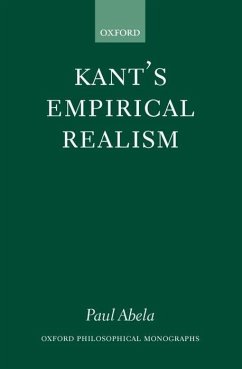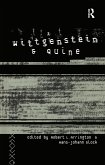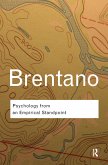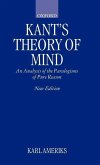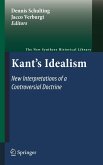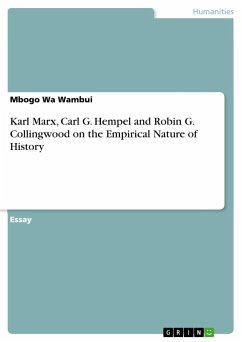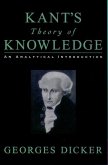Kant claims that Transcendental Idealism yields a form of realism at the empirical level. Polite silence might best describe the reception this assertion has garnered among even sympathetic interpreters. aul Abela challenges that prejudice, offering a presentation and rehabilitation of Kant's Empirical Realism that places Kant's realist credentials at the centre of the account of representation he offers in the Critique of Pure Reason. Abela's innovative interpretation ranges over the major themes contained in the Analytic of Principles and relevant portions of the Dialectic. Kant's analysis of the conditions necessary for determinate representation is shown to involve a realist understanding of the relation of mind and world. The realist character of Kant's account of empirical truth, and his commitment to the unity of nature, are defended against competing empiricist, pragmatist, and methodological readings. Kant's Empirical Realism will appeal to scholars and students of Kant in addition to epistemologists, metaphysicians, and philosophers of science interested in a powerful, experience-sensitive, form of realism.
Paul Abela presents a powerful, experience-sensitive form of realism about the relation between mind and world, based on an innovative interpretation of Kant. Abela breaks with tradition in taking seriously Kant's claim that his Transcendental Idealism yields a form of empirical realism, and giving a realist analysis of major themes of the Critique of Pure Reason. Abela's blending of Kantian scholarship with contemporary epistemology offers a new way of resolving philosophical debates about realism.
Paul Abela presents a powerful, experience-sensitive form of realism about the relation between mind and world, based on an innovative interpretation of Kant. Abela breaks with tradition in taking seriously Kant's claim that his Transcendental Idealism yields a form of empirical realism, and giving a realist analysis of major themes of the Critique of Pure Reason. Abela's blending of Kantian scholarship with contemporary epistemology offers a new way of resolving philosophical debates about realism.

